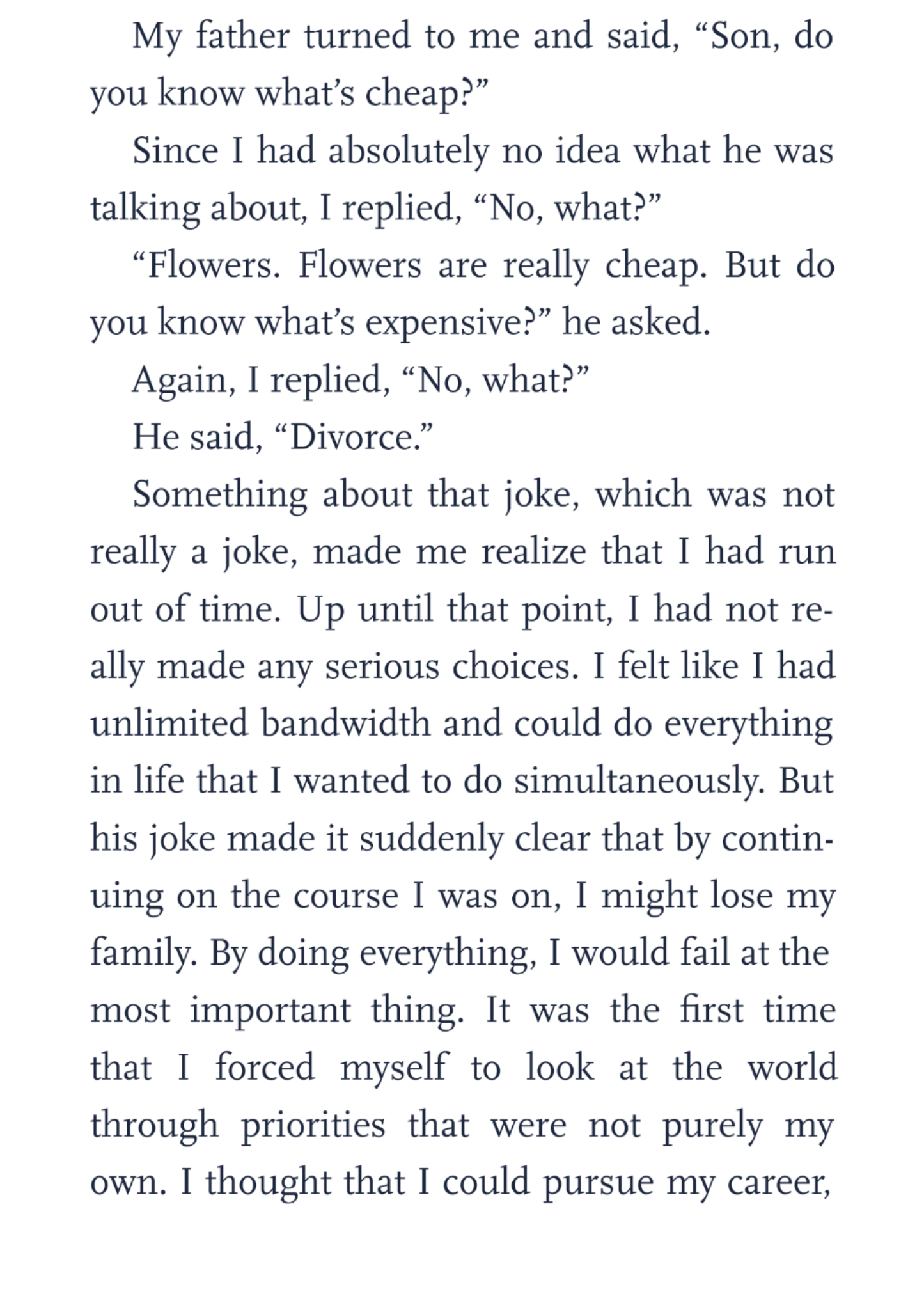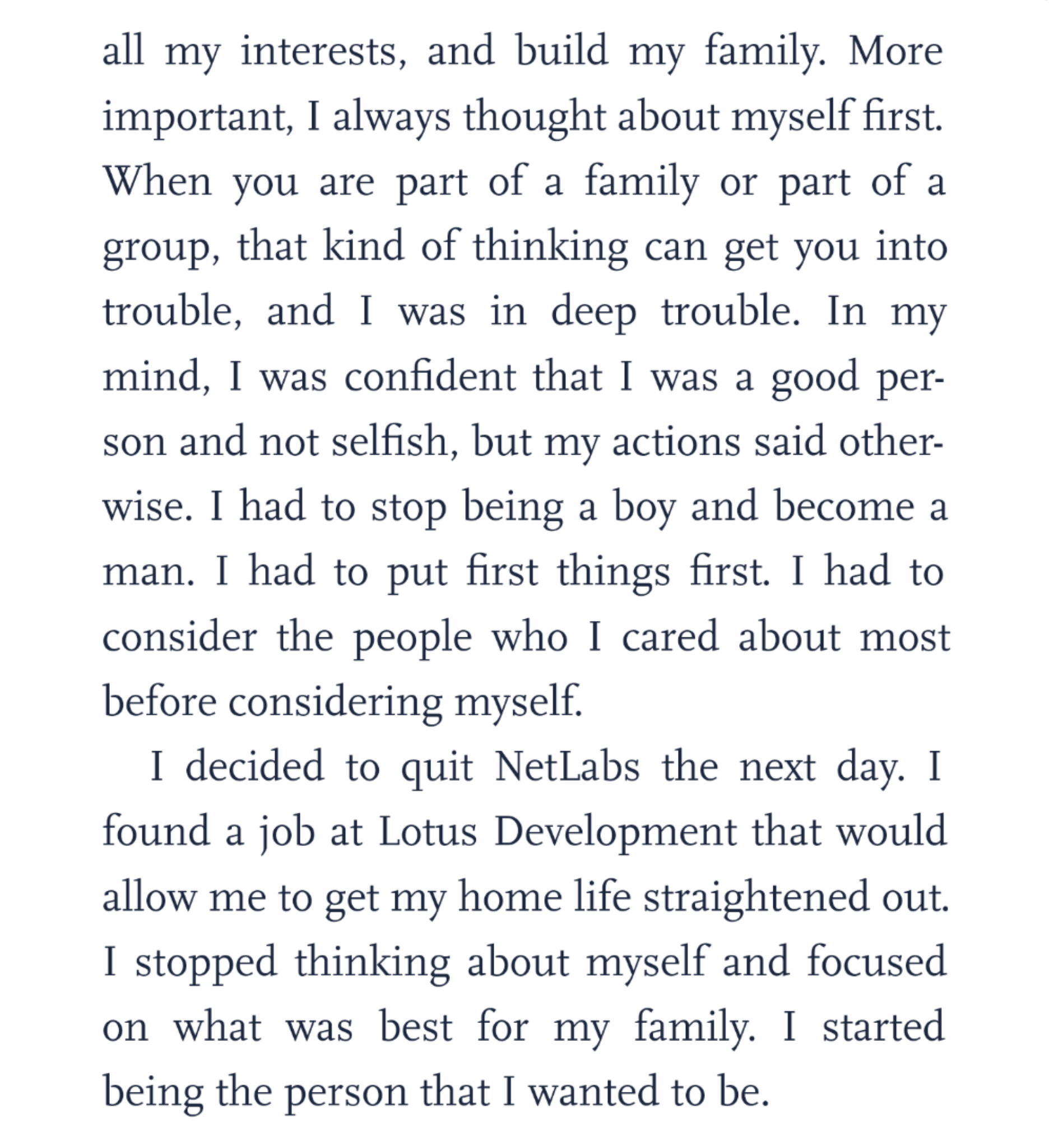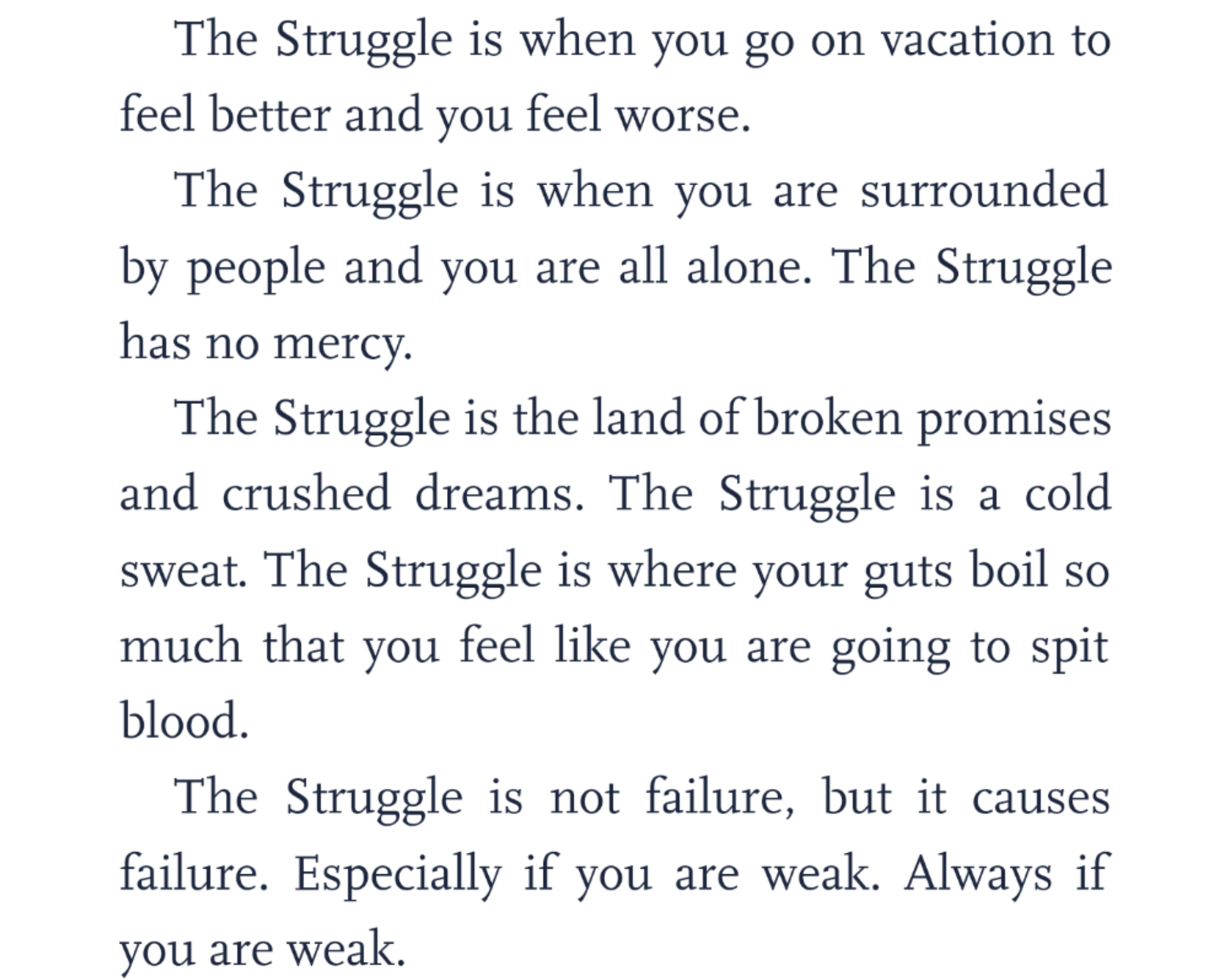The Hard Thing About Hard Things
- BookNotes The Hard Thing About Hard Things
- The author mentions a moment where he decided he has to make a serious choice as he can’t follow all his projects, passions, and interests and still have family. After that realization he left his startup job to get something more stable. This choice, however, didn’t prevent him from founding a startup in the future. And one that would take him even farther from his family at times. I find this rather inconsistent.
- Netscape came to be as a commercial approach to Mosaic (the first graphical Web browser). To this day, Mosaic Killer (Mozilla) is an important Web Browser and a proponent of the free Web.
- One of author’s companies, Loudcloud, was financed by SoftBank. I didn’t know SoftBank existed in the nineties. Nowadays, SoftBank looks to me like one of the most evil companies around.
- BookNotes The Hard Thing About Hard Things
- BookNotes The Hard Thing About Hard Things
- The author mentions a moment where he decided he has to make a serious choice as he can’t follow all his projects, passions, and interests and still have family. After that realization he left his startup job to get something more stable. This choice, however, didn’t prevent him from founding a startup in the future. And one that would take him even farther from his family at times. I find this rather inconsistent.
- Netscape came to be as a commercial approach to Mosaic (the first graphical Web browser). To this day, Mosaic Killer (Mozilla) is an important Web Browser and a proponent of the free Web.
- One of author’s companies, Loudcloud, was financed by SoftBank. I didn’t know SoftBank existed in the nineties. Nowadays, SoftBank looks to me like one of the most evil companies around.
- BookNotes The Hard Thing About Hard Things
- BookNotes The Hard Thing About Hard Things
- Don’t get me wrong, there’s a lot of great advice in the book. But it’s another example of “work 16h days to make it or you’re nothing”.
- The author mentions in tech you have to be great or you lose. I’m not sure about it and I definitely believe outside of tech you can be just good and still be fine.
- The story of keeping an executive with cancer on a payroll long enough so he can get health insurance was touching. However, it shows how broken the US health system is. If your literal life is a matter of your employer’s decision, is it very different from slavery?
- Another comment on the cancer story, the author mentions that the company was fighting for survival so he had more empathy for a person with cancer fighting for survival. I found this analogy extremely insensitive. Your company may not survive and you are still free to take the most of life, maybe just lowering your leisure expectations. When you have cancer, not surviving means something entirely different.
- BookNotes The Hard Thing About Hard Things
- BookNotes The Hard Thing About Hard Things
- Don’t get me wrong, there’s a lot of great advice in the book. But it’s another example of “work 16h days to make it or you’re nothing”.
- The author mentions in tech you have to be great or you lose. I’m not sure about it and I definitely believe outside of tech you can be just good and still be fine.
- The story of keeping an executive with cancer on a payroll long enough so he can get health insurance was touching. However, it shows how broken the US health system is. If your literal life is a matter of your employer’s decision, is it very different from slavery?
- Another comment on the cancer story, the author mentions that the company was fighting for survival so he had more empathy for a person with cancer fighting for survival. I found this analogy extremely insensitive. Your company may not survive and you are still free to take the most of life, maybe just lowering your leisure expectations. When you have cancer, not surviving means something entirely different.
- BookNotes The Hard Thing About Hard Things
- BookNotes The Hard Thing About Hard Things
- There are a lot of excuses in this book. “We did something bad, but we had to do this to survive”. No you didn’t. Survival of your company might have been at stake, but not your survival, neither that of your employees (unless in the United States you die when you become unemployed).
- This is yet another book focused mostly on public companies with huge teams. I haven’t yet found a good book talking about bootstrapped small to medium companies.
- There’s a lot of war metaphores. Hiring a general, curshing the compatition, and so on. Why it is highly poetic, it is used to justify terrible beahvior. When you’re in war, all that matter is whether you win or lose, so you can do just about anything to achieve your goal. Well, I see it as excuses, but then again I’ve never been a CEO of a publicly traded company.
- BookNotes The Hard Thing About Hard Things
- Don’t get me wrong, the book contains a lot of great advice, the problem is most of it targets US-based publicly traded tech companies or tech companies with external funding.
- I loved the suggestions for performing 1-on-1 management meetings!
- I was surprised by the description of toxic employee behaviors, as I realized it matched my behavior at one job perfectly! Because I saw what was rotten in a company (or sepcifically, a project I was in) and not being able to do anything about it I turned very sour and complained a lot.
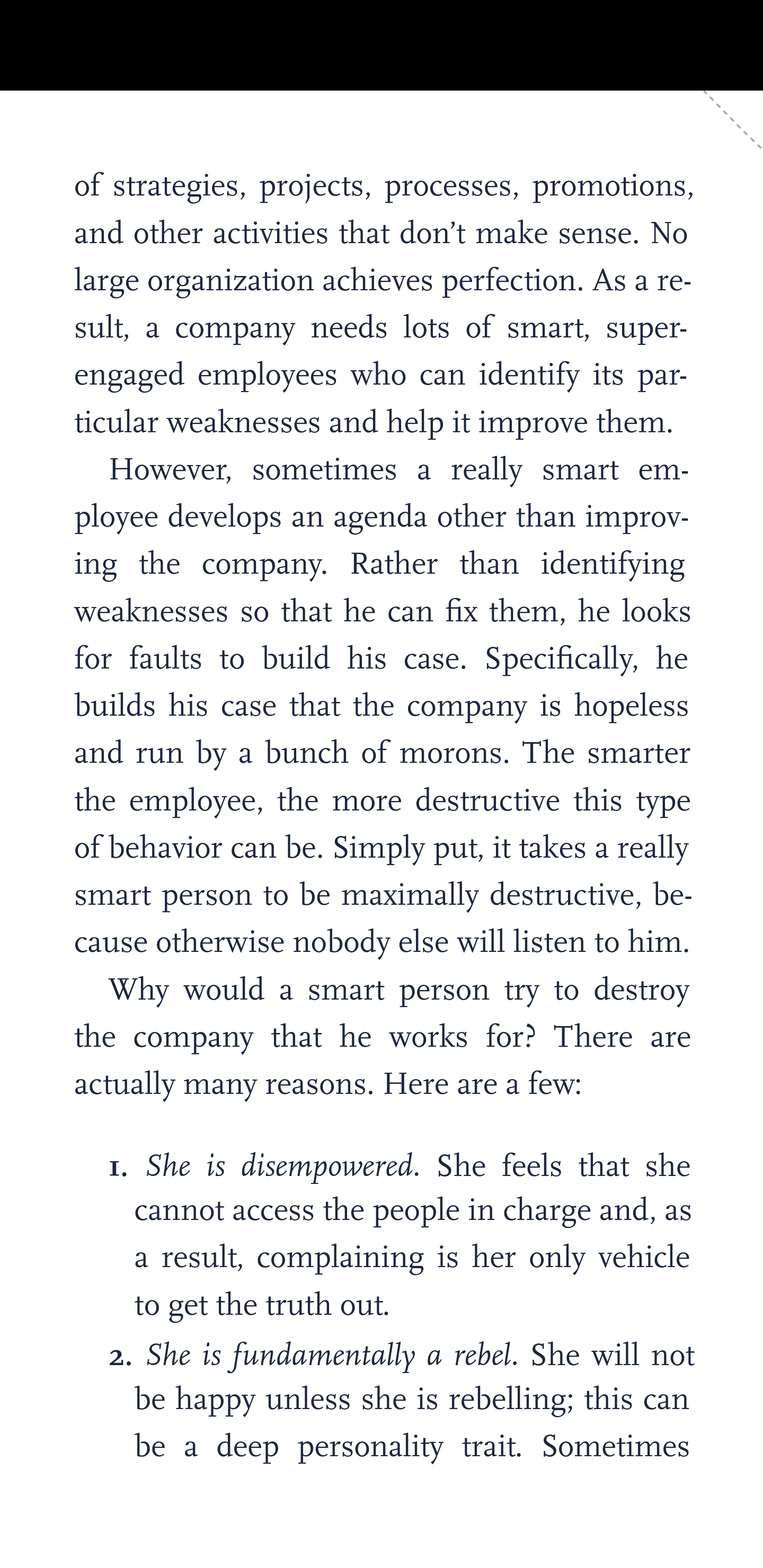
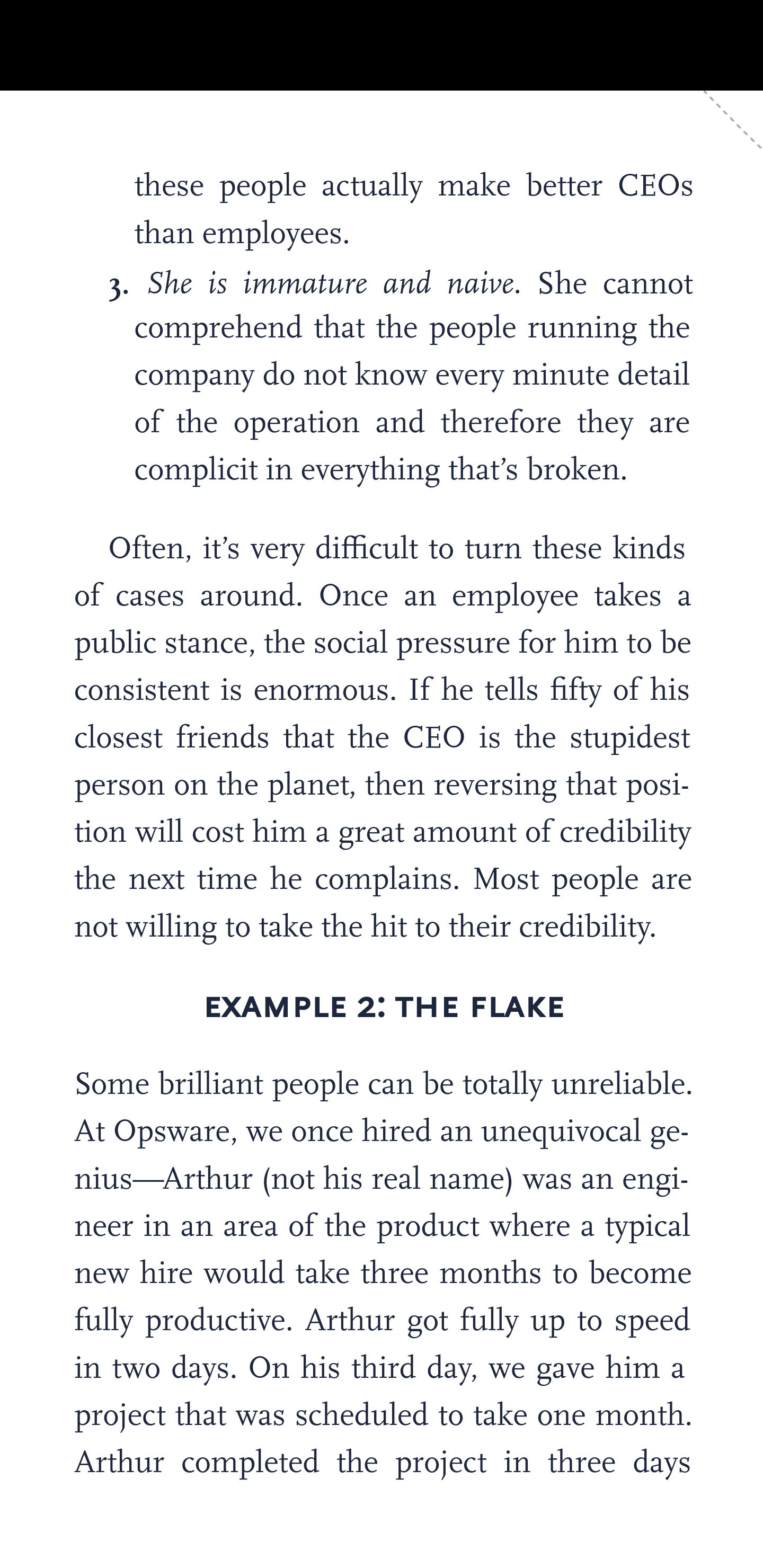
- BookNotes The Hard Thing About Hard Things
- One of the insights from the book was that you are not building company culture because it helps you when everything is going well. Company culture is there for when the things go wrong. When people work long hours and the competition seems to be crushing your company, great culture is what keeps people working for the company.
Notes mentioning this note
The Hard Thing About Hard Things
BookNotes The Hard Thing About Hard Things The author mentions a moment where he decided he has to make a...
